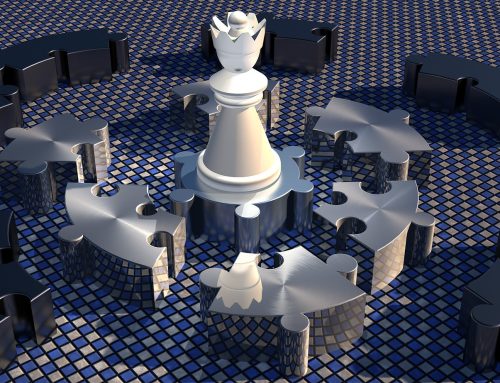Warum die Bedeutung von Echtzeit-3D-Renderings steigen wird.
Computer sind seit jeher dafür bekannt, einfache 2D-Repliken wie Linien, Bilder und Polygone in Echtzeit zu rendern. Aber mit dem Wachstum der Computergrafik wurde die 3D-Visualisierung und das Rendern von Animationen zu einem zeitraubenden Prozess. Aufgrund der Komplexität solcher Bilder erfordert es eine höhere Rechenleistung für eine qualitativ hochwertiges Ergebnis und damit einen längeren Rendering-Prozess als üblich. Mit der Weiterentwicklung der Technologie sind 3D-Renderings jedoch kein allzu fremdes Phänomen mehr. Der Umfang des Echtzeit-Renderings ermöglicht es, Bilder auf einem Computer schnell genug zu replizieren, so dass ein Betrachter mit der gleichzeitigen digitalen Umgebung interagieren kann.

Bildquelle: Wikipedia
„Unreal Paris“ – eine Ode an die Architekturvisualisierung.
Dieser Bereich des Echtzeit-Renderings dehnt sich langsam von Spielen auch auf andere Sektoren aus. Eines der besten Beispiele dafür ist das Video „Unreal Paris“, eine virtuelle Demo-Tour, die von Benoit Dureau mit Hilfe von „Unreal Engine 4“ in Echtzeit erstellt wurde. Dieses Projekt wurde über einen Zeitraum von sieben Wochen abgeschlossen und verschiedene Tests und Untersuchungen wurden durchgeführt, um das Verhalten von Unreal Engine 4 zu analysieren. Besonderes Augenmerk wurde auf die Berechnung des Licht- und Materialmanagements gelegt. Das Pojekt wurde zu einer großen Sensation und gilt als einer der besten Botschafter der Zukunft der Architekturvisualisierung. Designer und Architekten nutzen bereits die Architekturvisualisierung durch Anwendungen wie Eon LumenRT. Seine dynamische Visualisierungsengine hilft Architekten und Designern, sich ihre Entwürfe in Echtzeit klar vorzustellen. Darüber hinaus können auch physikalische Effekte wie Sonnenlicht, Schatten und Reflexionen problemlos hinzugefügt und Ergebnisse in Echtzeit generiert werden. Im Gegensatz zu Spieleanbietern führt LumenRT alle seine Renderings während der Bewegung durch und ist jederzeit editierbar. Bestimmte realistische Beleuchtungen können jedoch eine längere Renderzeit in Anspruch nehmen.
Die leuchtende Zukunft der 3D-Visualisierung und – Simulation.
Stellen Sie sich vor, wie ihr Haus im Sommer und Winter aussehen wird, noch bevor es gebaut wird. Ebenso kann man sich über die Verfügbarkeit von Wasser, Nachbarschaft, Verkehr, Vegetation etc. informieren und wie in einer Wohnung sogar ein ganzes Stadtbild nachbilden. Auf die gleiche Weise können Unternehmen ihre Produkte visualisieren und bestimmen, wie ihre Produkte in verschiedenen Marktphasen funktionieren werden, noch bevor Sie mit der Produktion beginnen. Lehrer und Professoren können alle Lerninhalte in Echtzeit nachbilden und den Schülern helfen, ihren Lernprozess zu verbessern. Mit Echtzeit-Rendering, 3D-Visualisierung und -Simulation steht eine totale Revolution bevor.
Alles für das Entertainment.
Echtzeit-3D-Rendering wird auch für die Filmindustrie von großem Nutzen sein, da es den Prozess der Pre-Visualisierung beschleunigt. Computergrafik, Animation und visuelle Effekte haben die Art und Weise, wie Filme gemacht werden, revolutioniert und jedes Jahr erleben wir eine Vielzahl von spannenden visuellen Inhalten. Solche komplexen Szenen sind ohne die Hilfe der Pre-Visualisierung nicht zu filmen. Da die meisten dieser Dreharbeiten vor blauen oder grünen Bildschirmen stattfinden, wird ein klares Modell des Endprodukts Kameramänner, Redakteure, Schauspieler, Visual Effects Supervisoren und so weiter effektiv koordinieren. Mit Echtzeit-Rendering, Pre-Visualisierung und damit Pre-Produktion geht es auch schnell, sie werden also von einer enormen Zeitersparnis profitieren. Neben Filmen hilft dies auch anderen Medien- und Unterhaltungsplattformen wie Fernseh- und Werbestudios.
Wichtige Akteure.
Epics „Unreal Engine“ wird nun auch zusammen mit RenderDigiMania verwendet, einer eigenständigen Anwendung, die die Animation in Maya oder 3ds Max rendert. Sobald Sie ihre Meshes in RenderDigiMania exportiert haben, können Sie ihre Assets sortieren, Materialien hinzufügen und auch die Beleuchtung mit spontaner und genauer Rückmeldung konfigurieren. Die Anwendung erlaubt auch die Ausgabe einer Vielzahl von Renderdurchläufen und ist auch in der Lage, 4K auszugeben. Eine weitere Anwendung, die ihr Potenzial erweitert, ist „Element 3D“, ein Plugin von Video Copilot. Abhängig von der Komplexität der Szene und der Effekte bietet „Element 3D“ eine Echtzeitvorschau und ein nahezu zeitnahes Rendering.
Das auffallende Merkmal ist, dass es eine Echtzeitvorschau und ein nahezu zeitnahes Rendering bietet. Das auffallende Merkmal ist, dass es eine einfache Möglichkeit bietet, 3D-Elemente zu 2D-Composite hinzuzufügen und Sie müssen kein Experte für 3D-Modellierung oder Rendering sein. Mit den neuesten Versionen haben sie auch einige verbesserte Techniken wie Echtzeit-Schatten und physikalische Shader eingeführt.
Jede Komplexität der Vergangenheit wurde durch das rasante Wachstum der Technologie leicht vereinfacht. Jede visuelle Präsentation bewegt sich heute in Richtung 3D-Interaktivität und das ist ein komplizierter Prozess. Aber mit der Art von Bemühungen, die bereits im Gange sind, könnte Echtzeit-Rendering in der nahen Zukunft eine ganz normale Voraussetzung sein.


